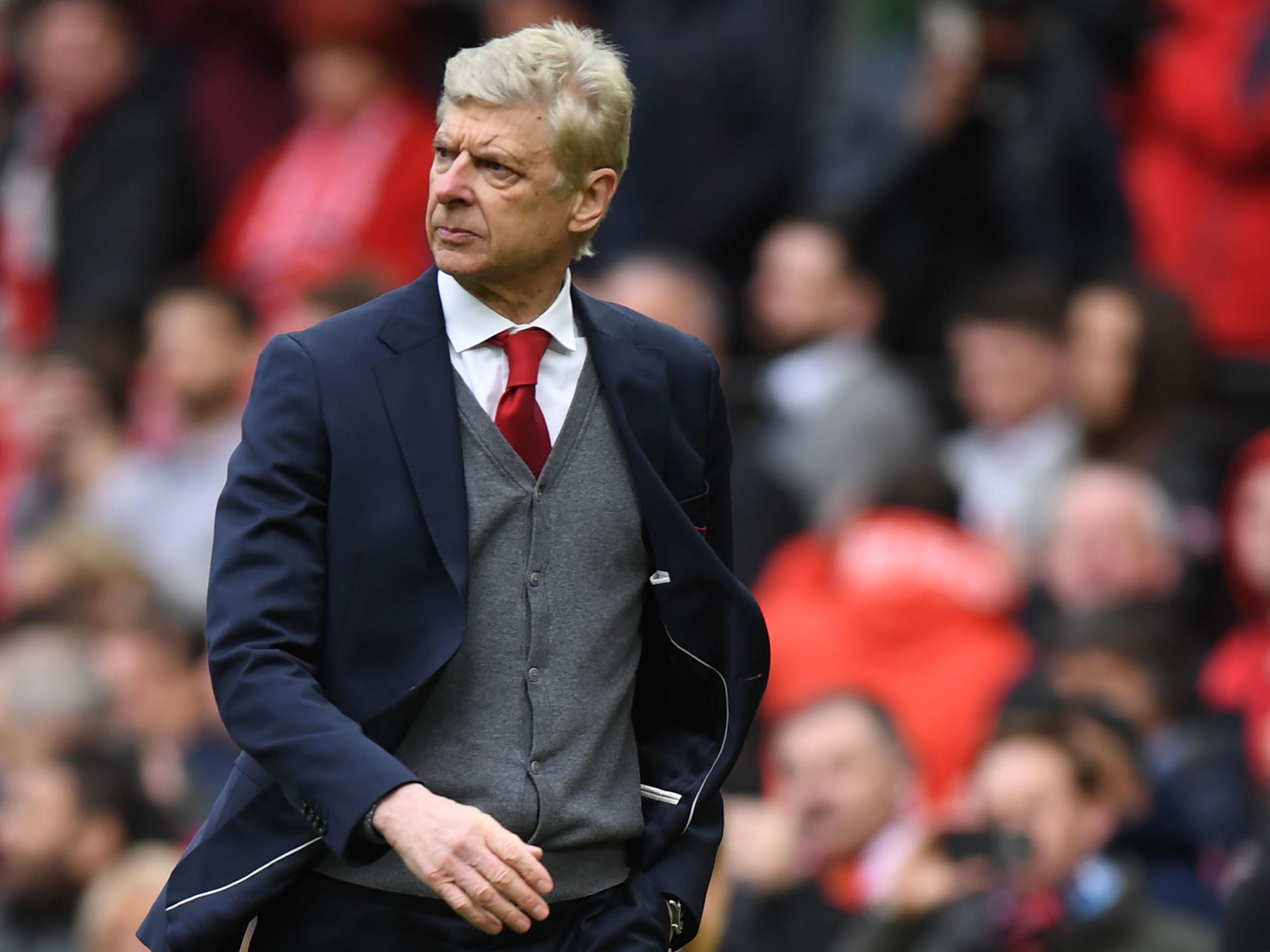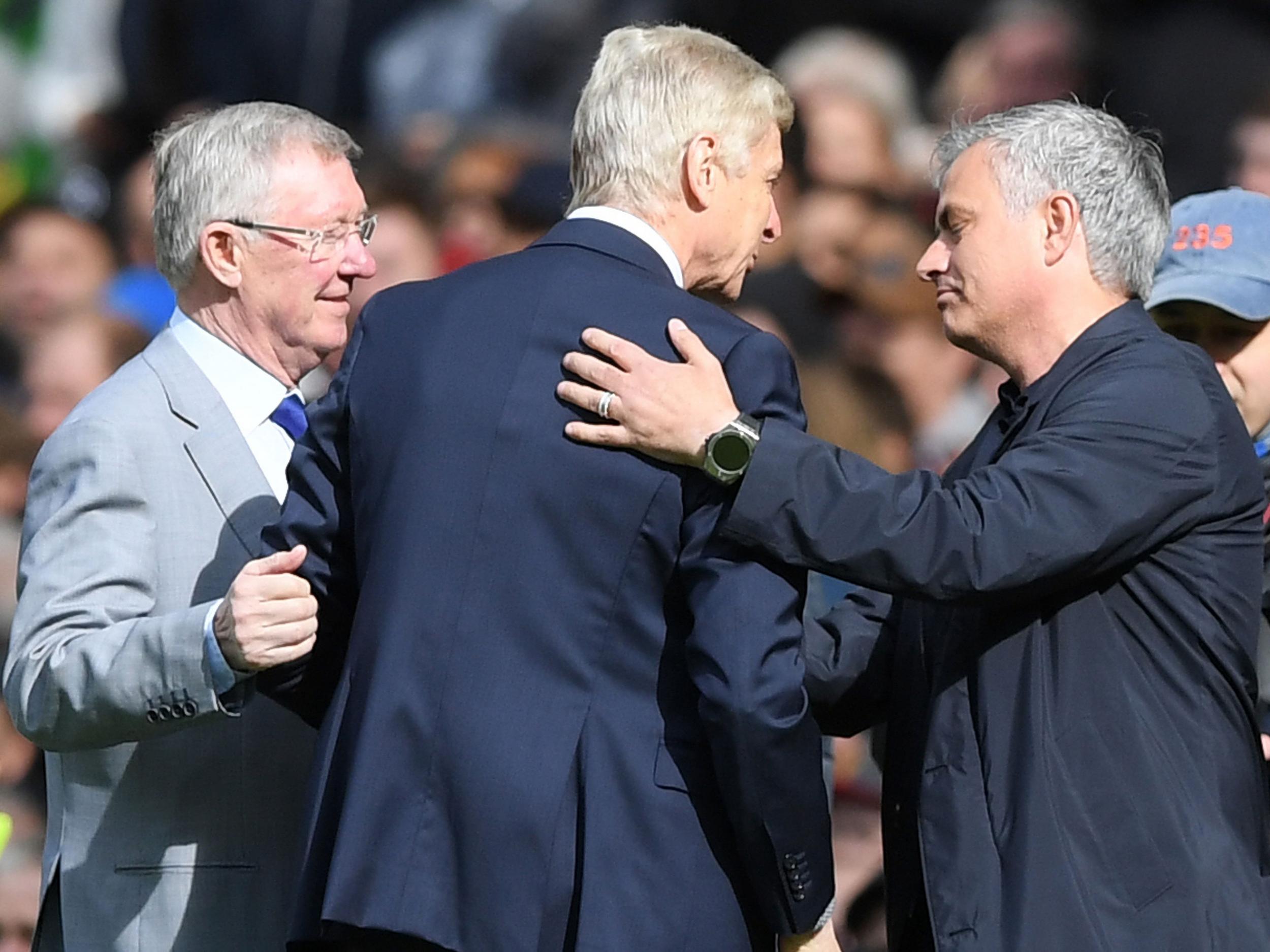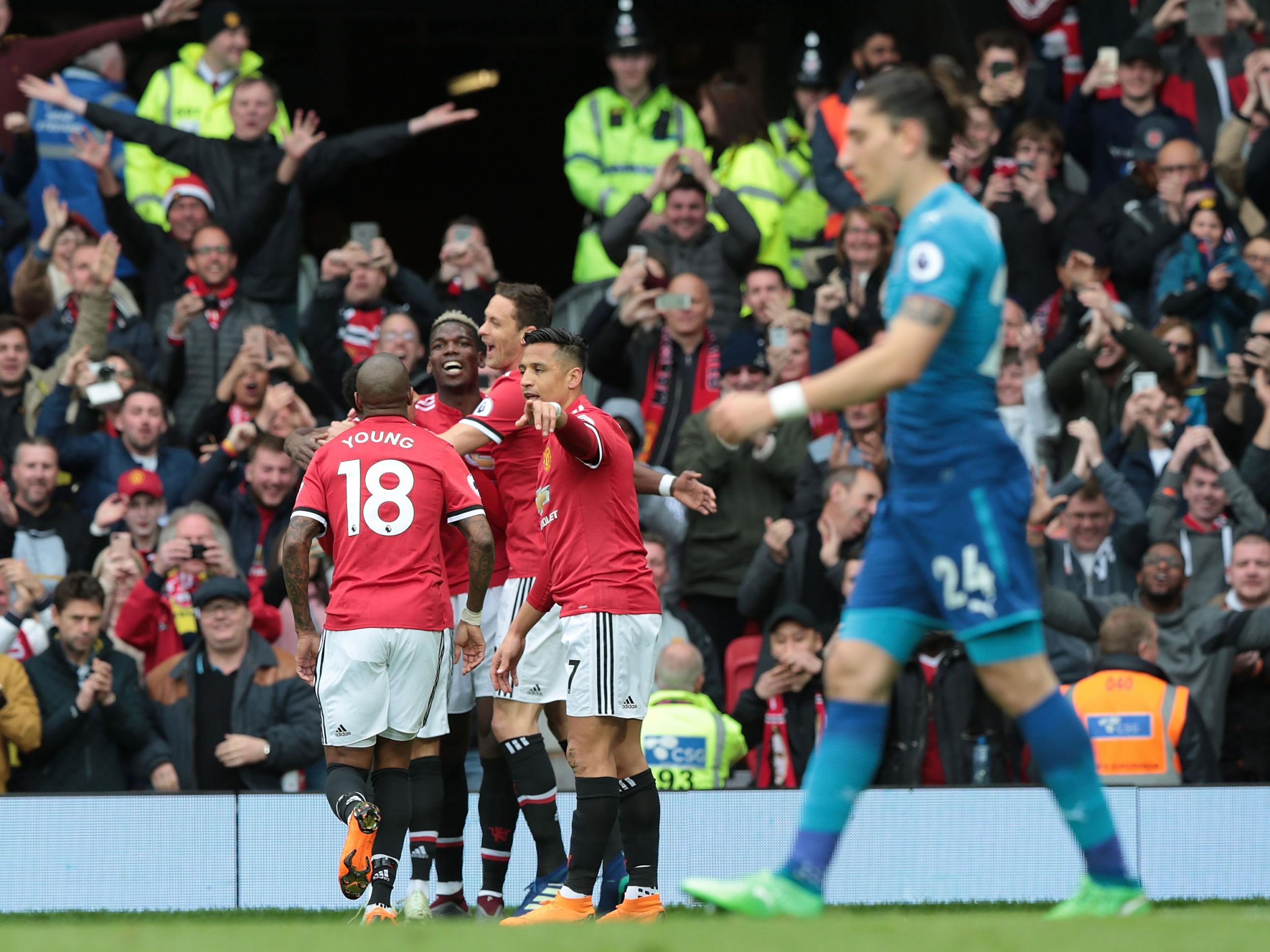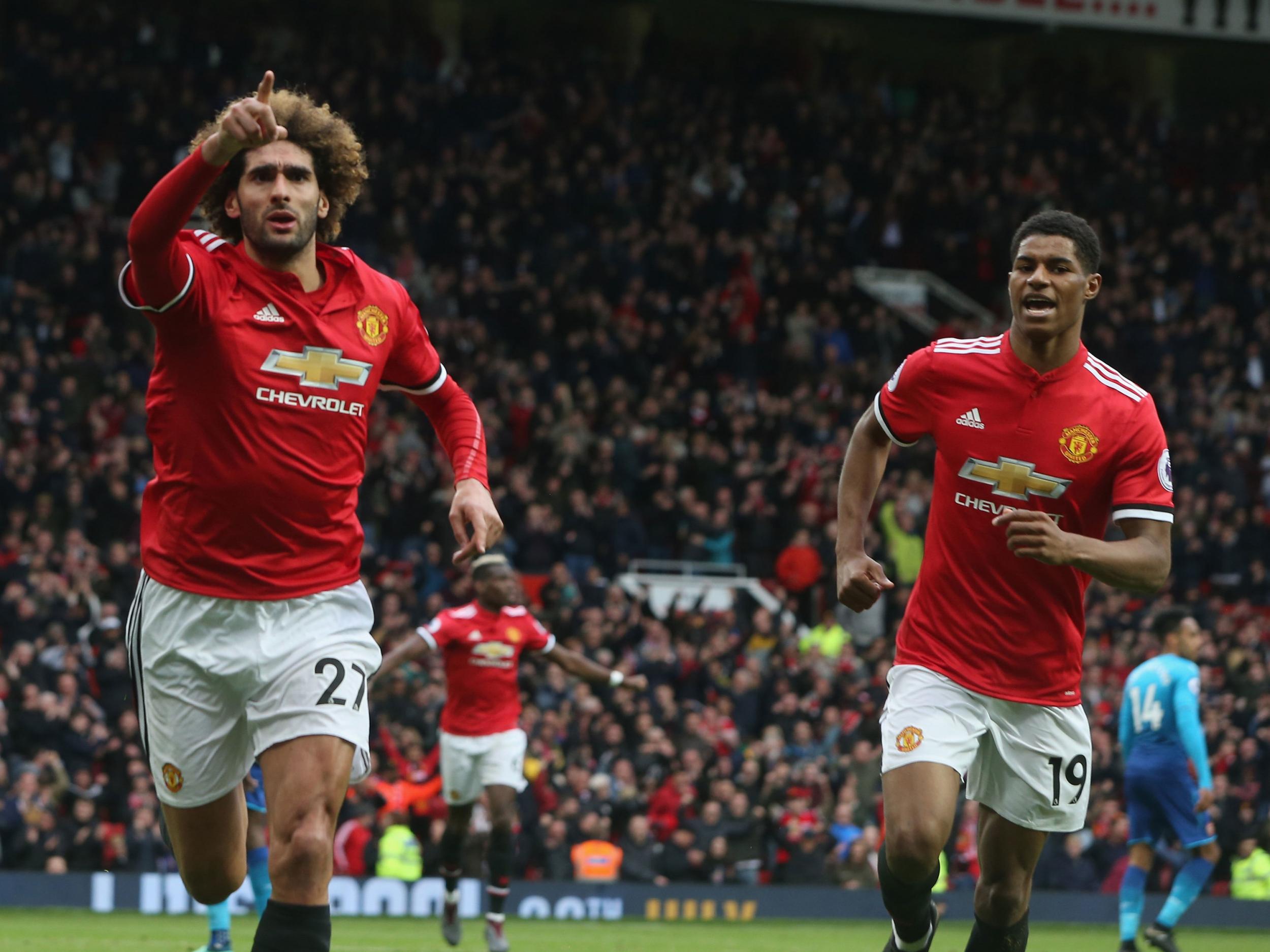Arsene Wenger's last visit to Old Trafford ended in fitting style - with a cruel yet predictable defeat
Arsenal have won only once in the league at United since 2004 - the truth is Sir Alex Ferguson's old bete noire became a safe bet for three points long ago

Your support helps us to tell the story
From reproductive rights to climate change to Big Tech, The Independent is on the ground when the story is developing. Whether it's investigating the financials of Elon Musk's pro-Trump PAC or producing our latest documentary, 'The A Word', which shines a light on the American women fighting for reproductive rights, we know how important it is to parse out the facts from the messaging.
At such a critical moment in US history, we need reporters on the ground. Your donation allows us to keep sending journalists to speak to both sides of the story.
The Independent is trusted by Americans across the entire political spectrum. And unlike many other quality news outlets, we choose not to lock Americans out of our reporting and analysis with paywalls. We believe quality journalism should be available to everyone, paid for by those who can afford it.
Your support makes all the difference.To mark the occasion of Arsene Wenger's final visit to Old Trafford as Arsenal manager, Sir Alex Ferguson gave an interview to Manchester United's matchday programme.
“It was like when you're driving along the road,” he said of his old rival's arrival 22 years earlier. “You have to be aware of somebody coming up in your wing mirror, trying to overtake you.”
Trying, but never quite managing it. When Wenger claimed his second Premier League title on this ground 16 years ago, it was not inconceivable that he could match Ferguson's total of seven at the time. Instead, he would win just one more. Ferguson would win six.
The 'wing mirror' analogy was a neat one, made by a man who knew he finished streets ahead.

Yet there was a recognition by United, Ferguson and the Old Trafford crowd that their vanquished rival should be shown the respect he deserves and in many ways, this was a better pre-match reception than the one he received at the Emirates a week earlier.
First, Wenger was warmly applauded along the touchline as he made his way out. Before he could take his place in the Sir Bobby Charlton Stand's dugouts, he was ushered onto the pitch, where Ferguson presented him with a memento. The Arsenal manager, who used to clasp league titles directly above his head with two hands, looked bashful as he half-heartedly lifted this gift in the crowd's direction.
Ferguson's successor was more bashful still. Jose Mourinho had to be gently encouraged to join the pair on the pitch, but he did, shaking hands with the man he famously described as a “voyeur” and a “specialist in failure”. He was, at least, practising what he preached when he asked United's support to show Wenger respect.
There was an ovation, more applause and later, a pat on the back from Fred the Red. It was a sincere show of respect, but altogether, it also felt like the culmination of a long, slow process of neutralisation that began some 14 years ago, when Ruud van Nistelrooy wailed with joy at ending the 49-game unbeaten run.

Wenger has celebrated just one league win at Old Trafford since that day. Arsenal have rarely challenged United for honours in that time, either. United were unbeaten in 10 home league matches against their visitors before kick-off, their longest run since March 1961. Ferguson's bete noire became a safe bet for three points long ago.
And so, just as it was apt that he should return here in his final weeks as Arsenal's manager, it also seems fitting that his last visit should end in cruel yet predictable defeat.
When the Arsenal teamsheet included relative novices in Ainsley Maitland-Niles, Reiss Nelson and Konstantinos Mavropanos, a thrashing seemed afoot. The last time that Wenger named such a youthful starting line-up at Old Trafford, it was eviscerated in an 8-2 defeat, perhaps the most humiliating of his tenure.

Paul Pogba's opening goal was not followed by another five or six though, and when Henrikh Mkhitaryan struck against his former club, it seemed as though Wenger's long history on this ground would end with one last show of resistance, reminiscent of those triumphant early days.
That, however, is not the story of Arsenal's recent history here and those hopes were brutally punctured in the first minute of stoppage time Marouane Fellaini's winning header.
Wenger brought success back to Highbury and laid the very foundations of the Emirates but Old Trafford is the stadium that shaped him, defining his success and failure. He conquered this ground at the point it seemed unconquerable, it defeated him at the point he appeared invincible. He left it for the final time beaten again, but worse still, neutralised, no longer considered a threat.
Join our commenting forum
Join thought-provoking conversations, follow other Independent readers and see their replies
Comments